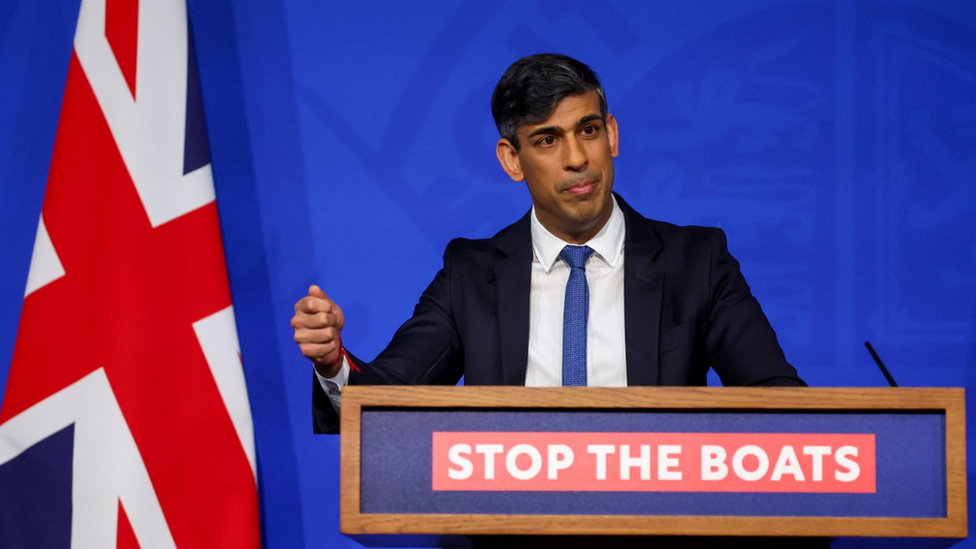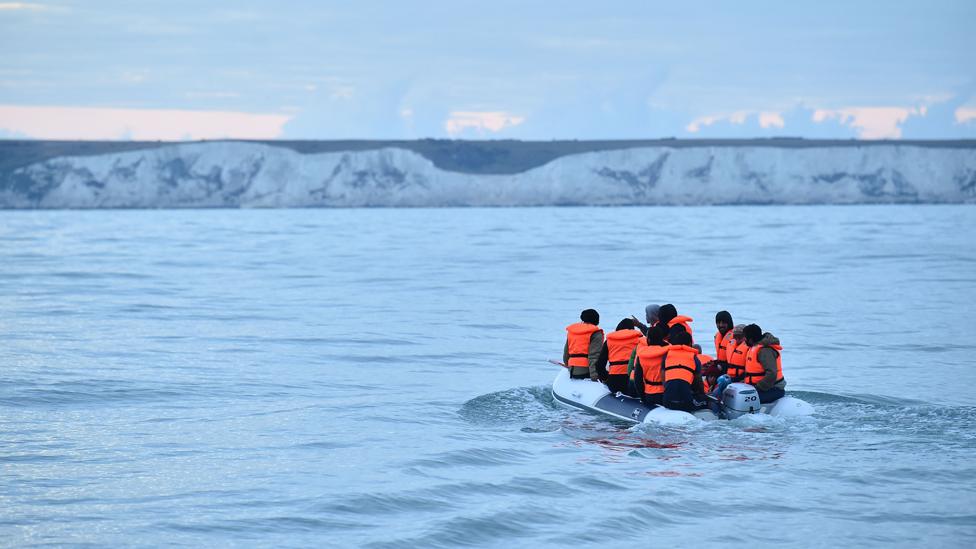Asylum seekers: Home Office says more than 17,000 are missing
- Published
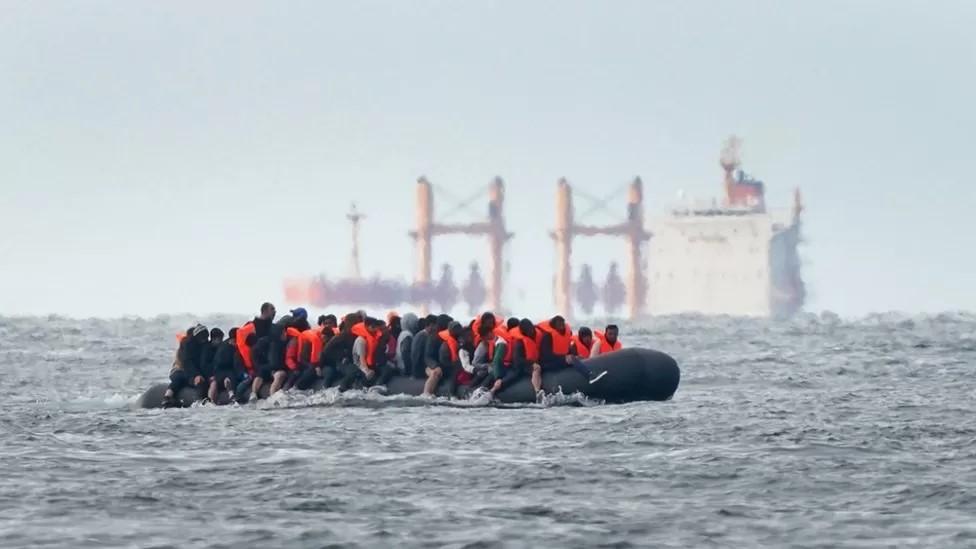
As of 13 November, 27,284 people had crossed the English Channel in small boats in 2023
Home Office officials have admitted they do not know the whereabouts of more than 17,000 asylum seekers whose claims have been discontinued.
The number emerged as MPs discussed Rishi Sunak's target to eliminate the asylum backlog by the end of the year.
The Home Office has withdrawn thousands of asylum applications after claimants failed to respond.
A senior official told the home affairs select committee: "I don't think we know where all these people are."
Asked whether some people had returned to their home countries, Simon Ridley, a senior civil servant in the Home Office, said he did not know.
Officials told the committee that claims are withdrawn if asylum seekers fail to respond to two successive case worker interview requests or questionnaires.
Since December last year this has happened 17,316 times. In 2021, 2,141 applications were refused or withdrawn, although 24,403 were refused or withdrawn in 2004.
When an application is withdrawn it means it is no longer being considered and if the claimant remains in the UK they are here illegally and can be removed.
Figures published last week put the number of cases in the so-called "legacy backlog" at 39,668 as of the end of September. This relates to asylum claims made before June 2022.
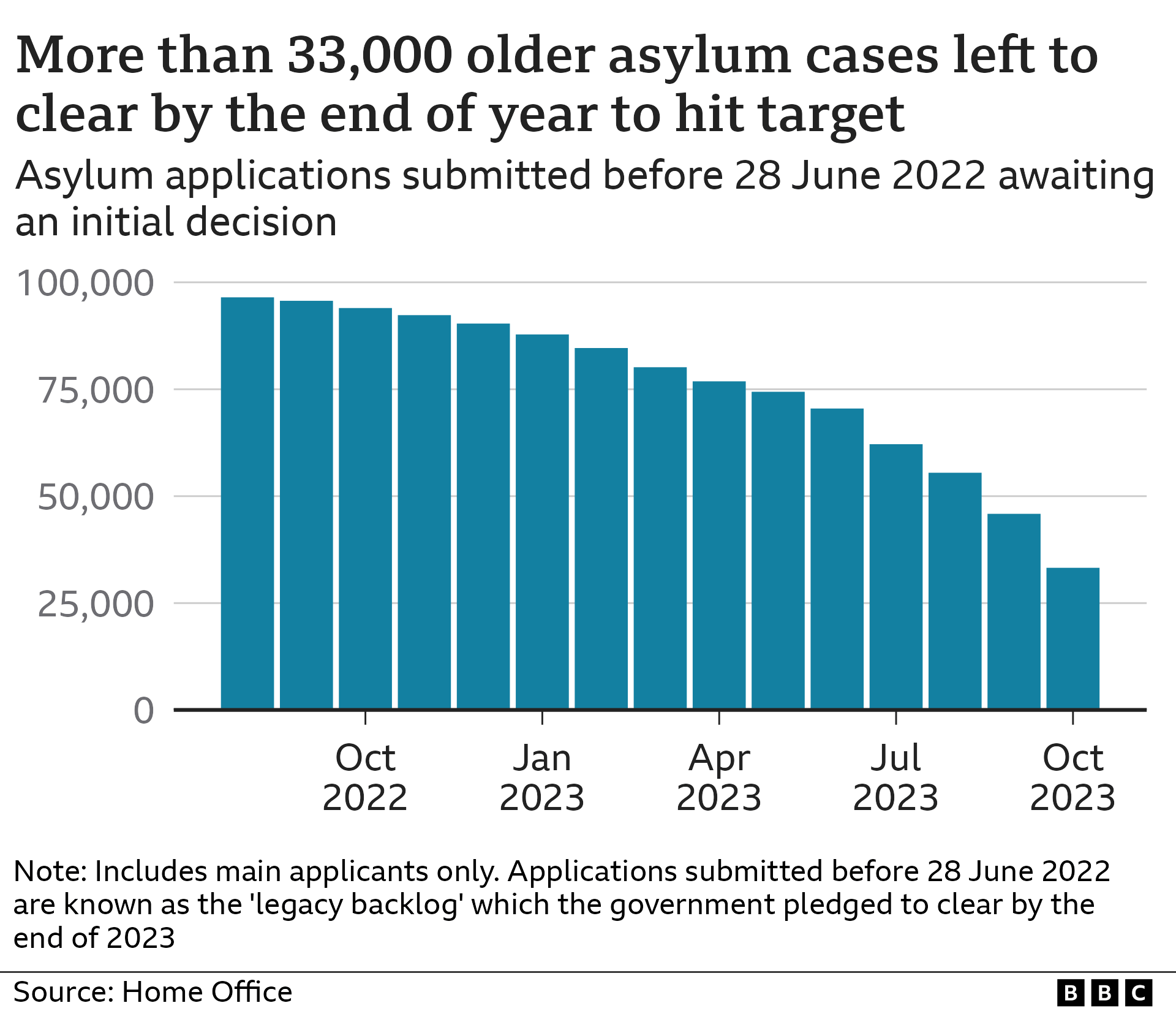
The Home Office's most senior civil servant, Sir Matthew Rycroft, said the government had always been confident it would reach the target set by the prime minister, and had hired more case workers to assess claims.
But Conservative MP Tim Loughton, who is on the select committee, said: "Is it strange, that conveniently, when faced with a very stiff target, there has been a three-fold increase for the undetermined reasons of people magically not going forward with their claims?"
Officials are under pressure to reduce the backlog as the government continues with plans to send asylum seekers to Rwanda.
Sir Matthew told MPs that officials were in the capital Kigali to put "finishing touches" to the talks after the Supreme Court ruled the plan was unlawful.
The court said there was a risk asylum seekers sent there could be returned to their home country, which would break UK and international human rights laws.
The Home Office is negotiating a treaty which Rishi Sunak says will satisfy the Supreme Court's concerns about Rwanda being a safe third country.
The government says the policy would deter people from using small boats to cross the English Channel. As of 28 November, 28,072 people had crossed the English Channel in small boats in 2023.
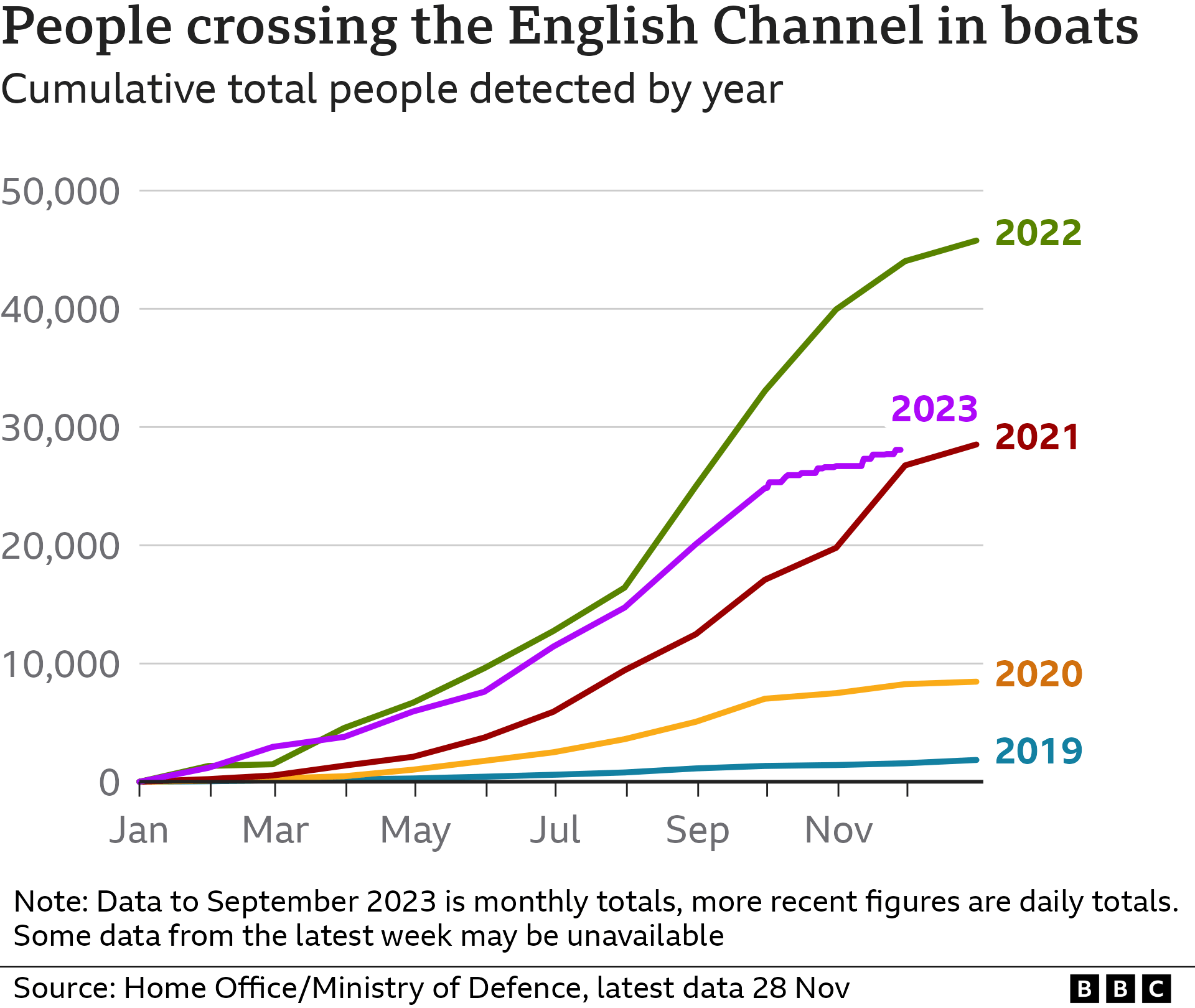
There are questions about how much the government has already paid Rwanda, after MPs were told it would be months before they would learn whether it was more than the £140m previously disclosed.
Sir Matthew hinted more could be paid, but would not say if any additional payments had since been made, instead saying ministers had decided not to reveal that information until the summer.
Committee chairwoman Labour MP Dame Diana Johnson said this response made it "quite hard to effectively scrutinise the flagship policy of the Home Office, and how much is being spent on it, when we're only getting the figures at the end of the year."
- Published13 June 2024
